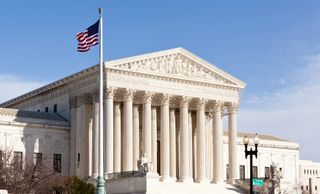40 Years After Roe vs. Wade, Most Don't Want Abortion Decision Overturned

Editor's note: As of August 17, 2022, the constitutional right to abortion has been eliminated in the U.S., following the Supreme Court's decision to overturn Roe v. Wade on June 24, 2022. The following article was published on Jan 18, 2013, and therefore the legal information is no longer accurate.
—Abortion laws by state: https://reproductiverights.org/maps/abortion-laws-by-state/
—For questions about legal rights and self-managed abortion: www.reprolegalhelpline.org
—To find an abortion clinic in the U.S: www.ineedanA.com
—Miscarriage & Abortion Hotline operated by doctors who can offer expert medical advice: Available online or at 833-246-2632
—To find practical support accessing abortion: www.apiarycollective.org
Next Tuesday, Jan. 22, will mark the 40th anniversary of Roe vs. Wade, the historic Supreme Court decision that protected a woman's right to have an abortion. Despite heated political debates over the issue, Americans' attitudes toward abortion have remained quite stable over the past few decades, and according to a new survey, most don't want to reverse the high court's decision — if they even know what it's about. The poll also found that among Americans under 30, less than half knew that Roe v. Wade dealt with abortion.
A national survey from the Pew Research Center found that 63 percent of Americans don't want Roe v. Wade overturned, compared with 29 percent who want the 1973 ruling reversed. These opinions are hardly changed from Pew's surveys in 2003 and 1993, when 31 percent and 34 percent, respectively, wanted the decision overturned.
Most people surveyed by Pew (62 percent) knew that Roe v. Wade dealt with abortion rather than another issue, like school desegregation (7 percent), the death penalty (5 percent) or environmental protection (5 percent). Twenty percent didn't know at all. But there was an age gap in awareness of the decision. Among those ages 50 to 64, 74 percent knew the ruling had to do with abortion, but among those younger than 30, just 44 percent knew this, Pew said.
But that lack of awareness among younger generations might not be all that surprising considering that the under-30 set was also the least likely to think abortion is an a important issue. Among those 18-29, 62 percent described abortion as "not that important compared to other issues," compared with 51 percent of 50- to 64-year-olds who said the same.
Revealing a perhaps unsurprising political gap, 46 percent of Republicans surveyed said Roe v. Wade should be overturned and 48 percent said it should not, while Democrats strongly opposed reversing the decision, 74 to 20 percent. There was no gender gap, however, in public opinion on the issue. Pew found that 64 percent of women and 63 percent of men opposed overturning the decision.
Pew said its poll was conducted Jan. 9 to 13 among a national sample of 1,502 adults.
Sign up for the Live Science daily newsletter now
Get the world’s most fascinating discoveries delivered straight to your inbox.
Follow LiveScience on Twitter @livescience. We're also on Facebook & Google+.
This article was updated on August 17, 2022 by Live Science contributor Alice Ball following the Supreme Court's decision to overturn Roe v. Wade on June 24, 2022. This decision eliminated the constitutional right to abortion that was established by the 1973 court case and later affirmed by a 1992 case called Planned Parenthood of Southeastern Pennsylvania v. Casey.

Most Popular

